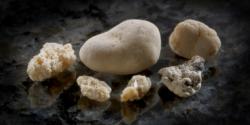Kidney and Ureteral Stones Treatment Israel

Urinary tract stones form from mineral and salts. While small kidney or ureteral stones usually don’t cause any symptoms, larger ones may cause significant discomfort including urinary retention, excruciating pain, bleeding and frequent infections.
Small stones (up to about 6-7 mm in diameter) can be passed naturally. Larger ones, however, require treatment.
Sample Program
Diagnostics:
- Laboratory tests
- Urinary tract US scan
- Abdominal CT scan (stone protocol)
- Urologist consultation
These investigations will provide a clear picture as to the type and extent of the intervention required.
Treatment:
Option 1 - Extracorporeal Shock Wave Lithotripsy (ESWL):
ESWL involves breaking the stone(s) into small pieces that can be evacuated through the urinary tract. It is the technique most commonly used to treat the condition.
The procedure is performed on one kidney at a time. If there is a need to operate on the second kidney, it can be done 14 to 30 days after the first one. Cost normally depends on the number of stones that need to be fragmented. There is a follow-up with the operating urologist several days after the procedure, after which (provided there are no complications) you will be able to return home.
Option 2 – Laser Ureteroscopy:
If the stone is located in an area unsuitable for lithotripsy, fragmentation is carried out by means of a laser ureteroscopy. It will require the insertion of an ureteral stent, which will be removed approximately a week after the procedure. After that you will be able to travel back home. No post-operative rehabilitation is required following this operation.
Option 3 – Percutaneous Nephrolithotomy or Nephrolithotripsy:
These laparoscopic surgeries are indicated in cases involving unusually large stones (over 2 cm in diameter) located near the pelvic region. During the procedure the surgeon will access the kidney through a small incision on your back and either extract the intact stone through a special tube (nephrolithotomy) or break it up using high frequency sound waves and then extract it (nephrolithotripsy).

















 Toronto:
Toronto:  London:
London: 



